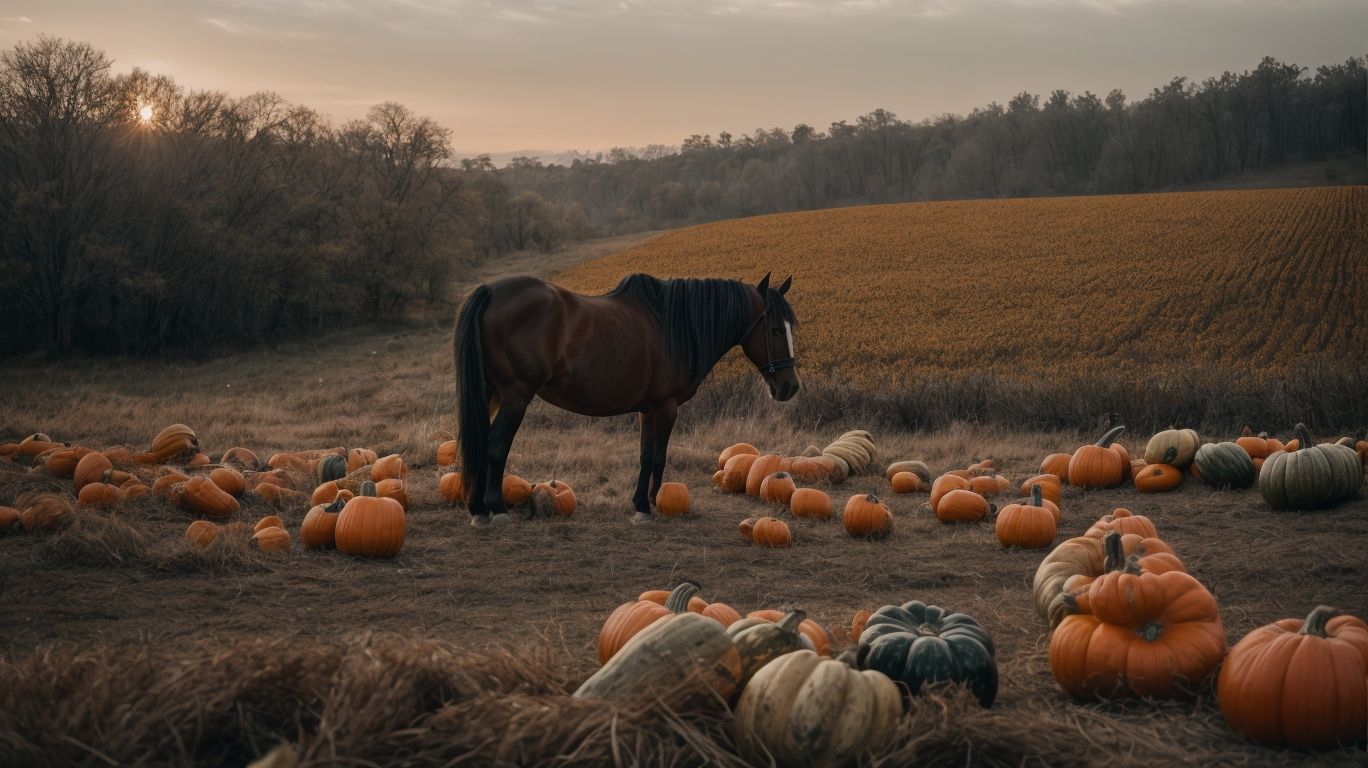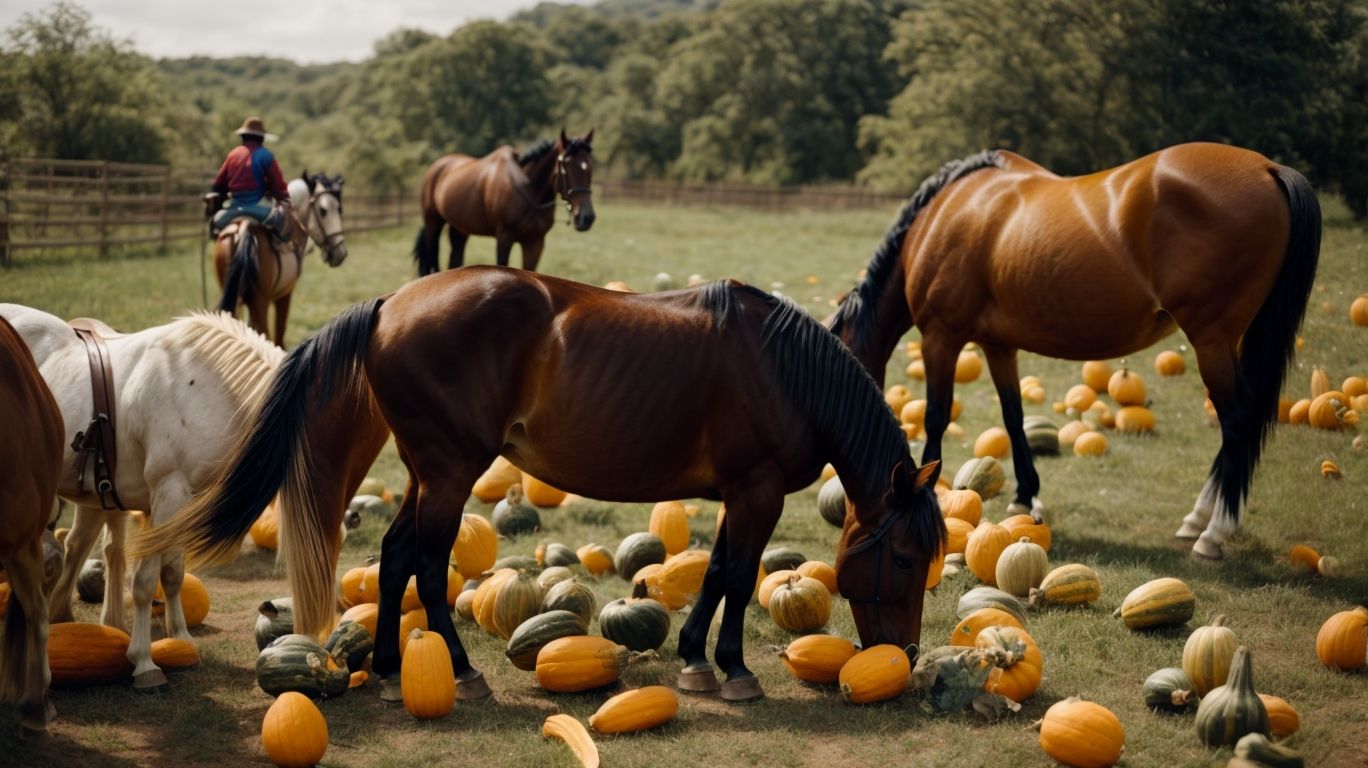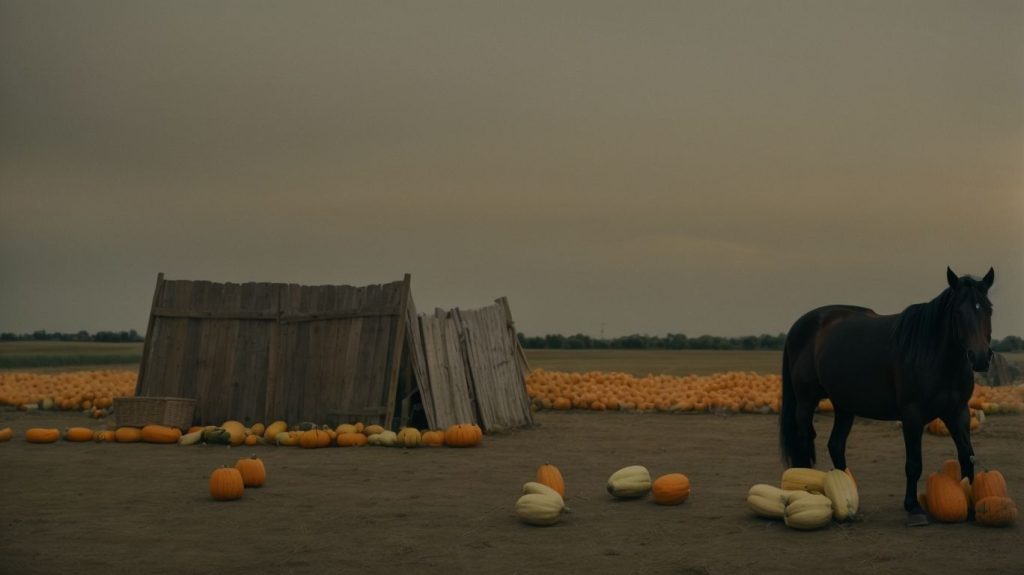In recent years, horse owners have become increasingly curious about the potential benefits of incorporating squash into their equine companions’ diets. With its rich array of vitamins and minerals, squash holds the promise of enhancing a horse’s overall well-being. In this comprehensive guide, we will explore the nutritional benefits of squash for horses, shedding light on the specific vitamins and minerals it provides and how they support a horse’s digestive system. We will delve into the types of squash that are safe for equine consumption and the recommended serving sizes. We will address any potential risks or side effects associated with feeding squash to horses and provide insights on safely introducing this vegetable into a horse’s diet. Whether you’re a seasoned equestrian or a newcomer to the equine world, this article aims to equip you with the knowledge needed to make informed decisions about incorporating squash into your horse’s nutrition regimen.
Key Takeaways:
Can Horses Eat Squash?

Credits: Horselife.Org – Kyle Rodriguez
Wondering whether horses can eat squash? The dietary considerations for horses often raise questions about the compatibility of certain fruits and vegetables with their digestive systems.
Regarding including squash in a horse’s diet, it’s essential to weigh the potential benefits against the risks. Squash can be a source of vitamins and minerals, such as vitamin A and C, which are beneficial for a horse’s overall health. It’s important to introduce new foods gradually and monitor the horse for any digestive issues or allergic reactions.
Consulting with a veterinarian or equine nutritionist is crucial before introducing new foods to a horse’s diet. It’s important to follow guidelines from reputable sources, such as the American Society for the Prevention of Cruelty to Animals (ASPCA), to ensure the well-being of the horse.
What Are the Nutritional Benefits of Squash for Horses?
Squash offers a range of nutritional benefits for horses, making it a valuable addition to their diet. Understanding the specific advantages it provides can help in optimizing a horse’s overall health and well-being.
What Vitamins and Minerals Does Squash Provide for Horses?
Regarding the nutritional content, squash delivers a spectrum of essential vitamins and minerals that contribute to a horse’s overall health and vitality.
Squash is a rich source of vitamin A, crucial for maintaining healthy eyesight in horses, along with an abundance of vitamin C, which supports their immune system. It contains potassium and magnesium, essential for proper muscle function and electrolyte balance, which are particularly beneficial for equine athletes. The high fiber content in squash can aid in promoting healthy digestion in horses. With such a potent blend of nutrients, incorporating squash into a horse’s diet can greatly enhance their overall well-being.
How Does Squash Support a Horse’s Digestive System?
The inclusion of squash in a horse’s diet has positive implications for its digestive system, offering support and promoting healthy gut function.
Rich in fiber and easily digestible, squash aids in maintaining proper digestive regulation for horses. The high water content in squash also contributes to hydration and smooth digestion. The vitamins and minerals present in squash, such as vitamin A and potassium, play a crucial role in overall gut health.
When introducing other fruits or vegetables to a horse’s diet, it’s important to consider their compatibility with the digestive system. Slow and gradual introduction, along with observation for any adverse reactions, is advisable. Avoiding excessive sugary fruits and vegetables is also essential to maintain a balanced equine diet.
What Types of Squash Can Horses Eat?

Credits: Horselife.Org – Jacob Walker
Discovering the suitable varieties of squash that horses can consume ensures that they receive the nutritional benefits without any adverse effects on their health.
Is There a Difference in Nutritional Value Between Different Types of Squash?
Variations in the nutritional composition of different types of squash can influence their suitability for inclusion in a horse’s diet, warranting an assessment of their comparative benefits.
When considering the nutritional profiles of various types of squash for equine consumption, it’s essential to take into account their differences in fiber, sugar, and starch content.
For instance, while butternut squash may be higher in sugar, spaghetti squash is relatively lower in carbohydrates. The levels of essential minerals such as calcium, phosphorus, and magnesium vary across different squash varieties, which can impact their value as part of a horse’s balanced diet. Analyzing these disparities is crucial to making informed feeding decisions for equine nutrition and well-being.
How Much Squash Should You Feed Your Horse?
Determining the appropriate serving size of squash for a horse is essential to ensure that they receive the nutritional benefits without overconsumption or potential digestive issues.
What Is the Recommended Serving Size for Horses?
Determining the ideal serving size of squash for horses involves considering factors such as their weight, dietary requirements, and potential impact on their overall health and weight management.
When determining the serving size of squash for horses, it’s crucial to assess their weight as it directly influences their dietary needs. For instance, a heavier horse would likely require a larger portion of squash compared to a lighter one. Considering their daily caloric intake is also essential in managing their weight effectively.
Incorporating squash into a horse’s diet should be managed carefully to avoid potential digestive issues. Serving sizes should be adjusted gradually to allow for acclimatization and minimize the risk of digestive upset.
For horses with weight management concerns, moderation in squash serving sizes can be pivotal in preventing unwanted weight gain. Monitoring their overall calorie consumption alongside squash intake is vital for maintaining their optimal body condition.
Can Horses Eat Squash Seeds and Skin?
Understanding whether horses can consume squash seeds and skin is crucial in ensuring that their diet remains wholesome and free from any potential digestive discomfort.
Horses are herbivores, and feeding them properly is key to their digestive health.
Squash seeds can provide a source of healthy fats, protein, and essential vitamins and minerals, supporting the horse’s overall nutrition. The high oil content in the seeds can pose a risk of digestive upset if overfed. On the other hand, the skin of squash can offer fiber, beneficial for digestion, but too much may lead to blockages. Therefore, it’s vital to introduce these components gradually and monitor the horse’s response closely.
Are There Any Risks or Side Effects of Feeding Squash to Horses?
While squash offers notable nutritional benefits, it is essential to be aware of any potential risks or side effects that may arise from including it in a horse’s diet.
Can Squash Cause Digestive Upset in Horses?
The potential for squash to cause digestive upset in horses necessitates an evaluation of its impact on their gastrointestinal well-being and the measures to mitigate any adverse effects.
One of the primary concerns regarding the effects of squash on equine digestion is its high fiber content. While fiber is an essential component of a horse’s diet, excessive amounts from certain sources, such as squash, can lead to digestive disturbances.
Another factor to consider is the risk of overconsumption. Horses can be curious eaters, and if provided with an abundant supply of squash, they may consume more than their digestive system can comfortably process.
The introduction of new foods, including squash, should be gradual, allowing the horse’s gut microbiota to adjust and minimize the likelihood of gastrointestinal upset.
Can Squash Lead to Weight Gain in Horses?
Understanding the potential for squash to contribute to weight gain in horses is vital for managing their dietary intake and ensuring a healthy balance in their nutritional consumption.
When incorporating squash into a horse’s diet, it’s essential to consider the serving size and frequency. While squash is known for its nutritional benefits, such as being a good source of vitamins and fiber, excessive consumption can lead to an increase in calorie intake, potentially leading to weight gain. It’s crucial to monitor the amount of squash provided to horses, ensuring it complements, rather than disrupts, their overall diet. By being mindful of the serving sizes and their impact on the horse’s weight, squash can be a valuable addition to their diet without negatively affecting weight management.
Are There Any Allergic Reactions to Squash in Horses?
Assessing the potential for allergic reactions to squash in horses is crucial in safeguarding their well-being and addressing any sensitivities that may arise from its inclusion in their diet.
As with any new addition to a horse’s diet, introducing squash should be done gradually, while observing for any signs of adverse reactions.
While horses, like humans, can have individual sensitivities and allergies, squash is generally considered safe for equine consumption.
If allergic reactions occur, they may manifest as skin irritations, digestive issues, or respiratory distress.
Immediate removal of squash from the diet and consulting a veterinarian for appropriate treatment is essential in managing any adverse effects.
How to Safely Introduce Squash into a Horse’s Diet?
Safely introducing squash into a horse’s diet involves strategic considerations and gradual implementation to ensure a seamless transition without any adverse effects on their health and well-being.
Frequently Asked Questions
Can Horses Eat Squash?
Yes, horses can eat squash as part of their diet. Squash is a nutritious vegetable that can provide valuable vitamins and minerals for horses.
What types of squash can horses eat?
Horses can eat various types of squash, including butternut, acorn, pumpkin, and spaghetti squash. It is important to remove any seeds and skin before feeding it to horses.
Is squash safe for horses?
Yes, squash is generally safe for horses to eat. However, it is important to introduce new foods gradually and in small amounts to avoid digestive upset.
What are the benefits of feeding squash to horses?
Squash is a great source of vitamins A, C, and E, as well as potassium and fiber. These nutrients can help improve a horse’s overall health and well-being.
How should squash be prepared for horses?
Squash should be cooked and mashed before feeding it to horses. This makes it easier for horses to digest and prevents any potential choking hazards.
Can horses eat raw squash?
No, horses should not eat raw squash. The tough skin and seeds can be difficult for horses to digest and can cause digestive issues. Always cook and mash squash before feeding it to horses.



